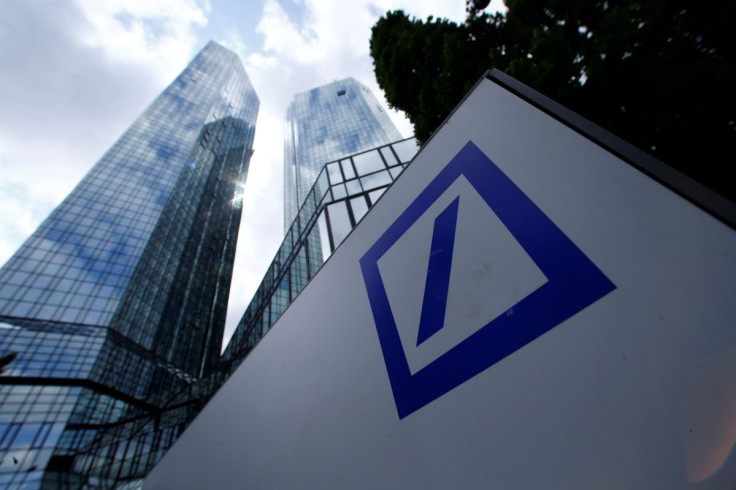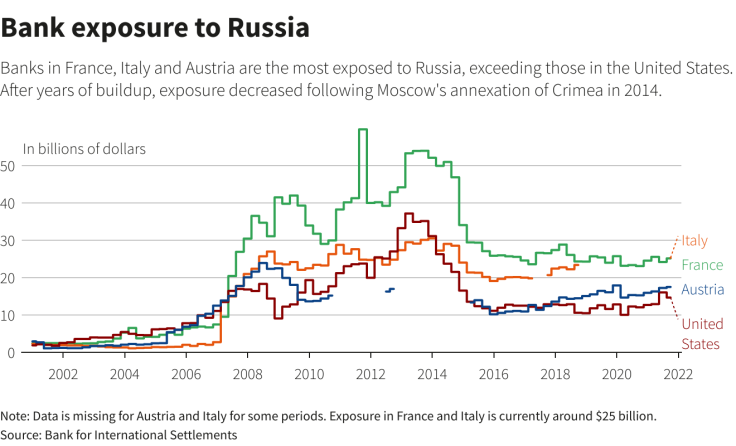European Finance Reacts To Ukraine Invasion With Emergency Plans, Bond Freezes

Europe's financial sector scrambled on Thursday after Russia invaded Ukraine, with Allianz disclosing it had frozen its Russian government bond exposure and top British domestic lender Lloyds saying it was on "heightened alert" for cyberattacks.
Deutsche Bank said it had contingency plans in place, and European officials warned that a fresh round of sanctions was in the offing.
Shares of leading banks sank at the start of trade. An index of European banking stocks was down 4.5% mid-morning, steeper than a 2.9% fall in the Euro Stoxx index.
Banks with significant operations in Russia were particularly hard hit, with Austria's Raiffeisen Bank International down 11.5% and Societe Generale losing 5.9%.
Shares in UniCredit, whose Russian arm is one of the largest lenders in the country, fell as much as 8%, before triggering an automatic trading suspension.
Earlier on Thursday, Russian forces fired missiles at several cities in Ukraine and landed troops on its coast, officials and media said, after President Vladimir Putin authorised what he called a special military operation in the east.
European banks are the world's most exposed to Russia - especially those in France, Italy and Spain, which far outstrip U.S. banks' exposure, data from the Bank for International Settlements shows.
(Graphic: Bank exposure to Russia,

)
German regulator BaFin said it was keeping a watchful eye on the crisis.
European Union leaders will impose new sanctions on Russia, freezing its assets, halting access of its banks to the European financial market and targeting "Kremlin interests" over its "barbaric attack" on Ukraine, senior officials said on Thursday.
Both Deutsche Bank and Allianz - two of Europe's most important financial firms and both with operations in Russia - said they were ready to comply with sanctions.
Allianz, one of the world's biggest asset managers, said that the share of Russian government bonds in its portfolio was "currently very low" and that it had recently implemented a freeze on those securities.
Deutsche Bank, like many lenders in recent years, has reduced its presence in Russia as sanctions on the country have expanded.
"We have contingency plans in place," the bank said in a statement. A spokesperson declined to elaborate.
Lloyds chief executive Charlie Nunn told reporters that it was on "heightened alert... internally around our cyber risk controls and we've been focused on this for quite a while."
Preparation for potential cyberattacks was discussed in a meeting between the government and banking industry leaders about Russia on Wednesday, Nunn added.
Lloyds has been on heightened alert for the "last couple of months", Nunn said.
Italian heavyweight Intesa Sanpaolo, which has financed major investment projects in Russia such as the 'Blue Stream' gas pipeline or the sale of a stake in oil producer Rosneft, fell 4.8%.
© Copyright Thomson Reuters 2024. All rights reserved.




















